According to the Coalition for Sustainable Egg Supply, 95% of American eggs come from chickens raised in battery cages. These cages house four to 12 birds, giving each bird roughly 67 square inches of floor space—about the size of an iPad. The cages are stacked in long rows inside massive barns housing tens of thousands of birds.
When this is the cruel reality for America’s poultry, the 4.9 billion eggs we consume per year require serious thought. What do the charming egg carton labels really mean?
Farm-Fresh/All Natural/No Hormones/No Antibiotics
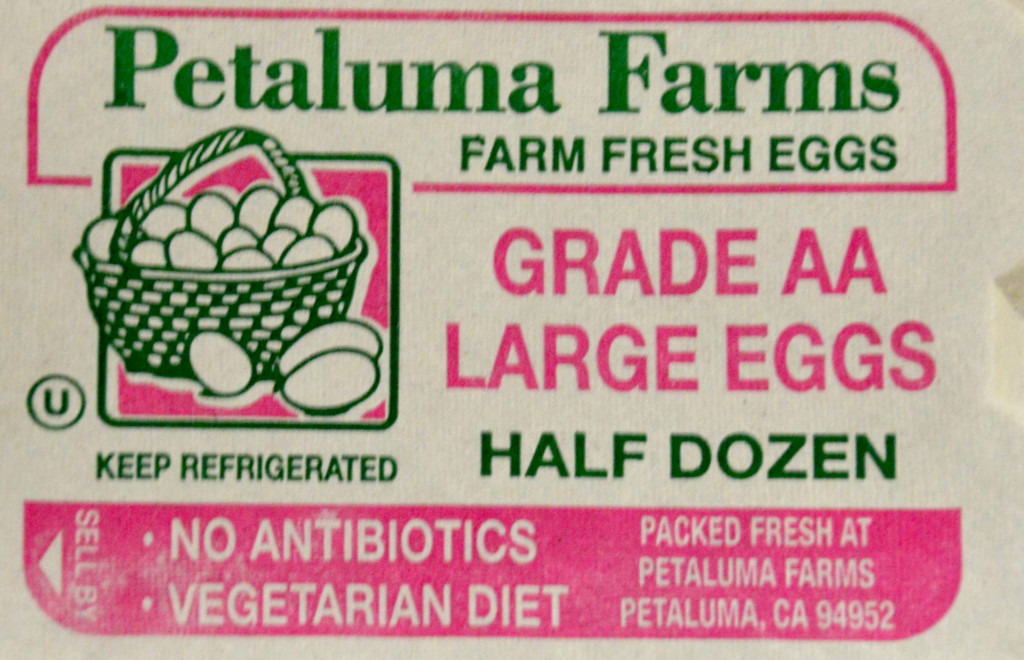
Photo by Smita Jain
‘Farm fresh’ and ‘all-natural’ are meaningless marketing ploys. Since chickens raised for eggs are never given antibiotics, and it’s illegal to give hormones to poultry, these labels are equally empty. As NPR puts it, “It’s like putting a label on a cereal box that says, ‘No toxic waste.’”
Vegetarian Diet
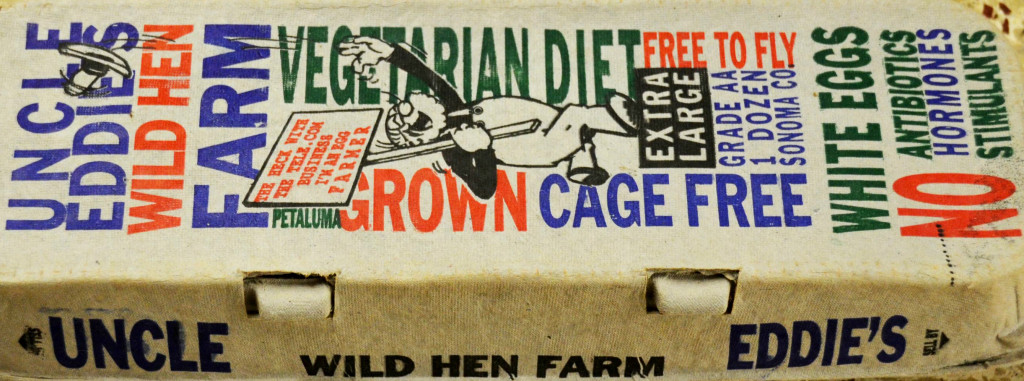
Photo by Smita Jain
Hens raised for eggs are usually fed corn mixed with animal byproducts, so “vegetarian diet” sounds like a good thing. But in the wild, chickens are omnivores who eat grass, worms, grasshoppers and other insects. “Vegetarian diet” means the hens are caged and fed corn instead of being allowed to naturally forage for their food outside.
Cage-Free
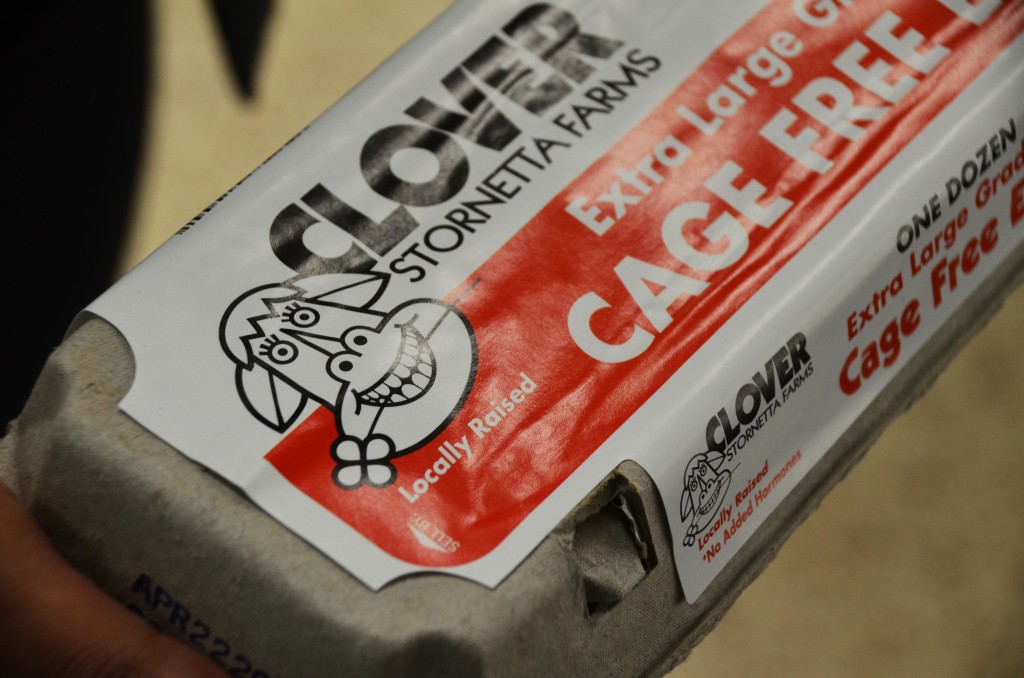
Photo by Smita Jain
Instead of battery cages, these hens live in aviaries, industrial barns that house thousands of birds. Each bird gets roughly one square foot of space, and technically they can walk around, perch, lay their eggs in a nest and spread their wings. But according to one study, the crowded aviaries offer reduced air quality and double the likelihood of dying. One of the leading causes of death was being pecked by other chickens.
Free-Range
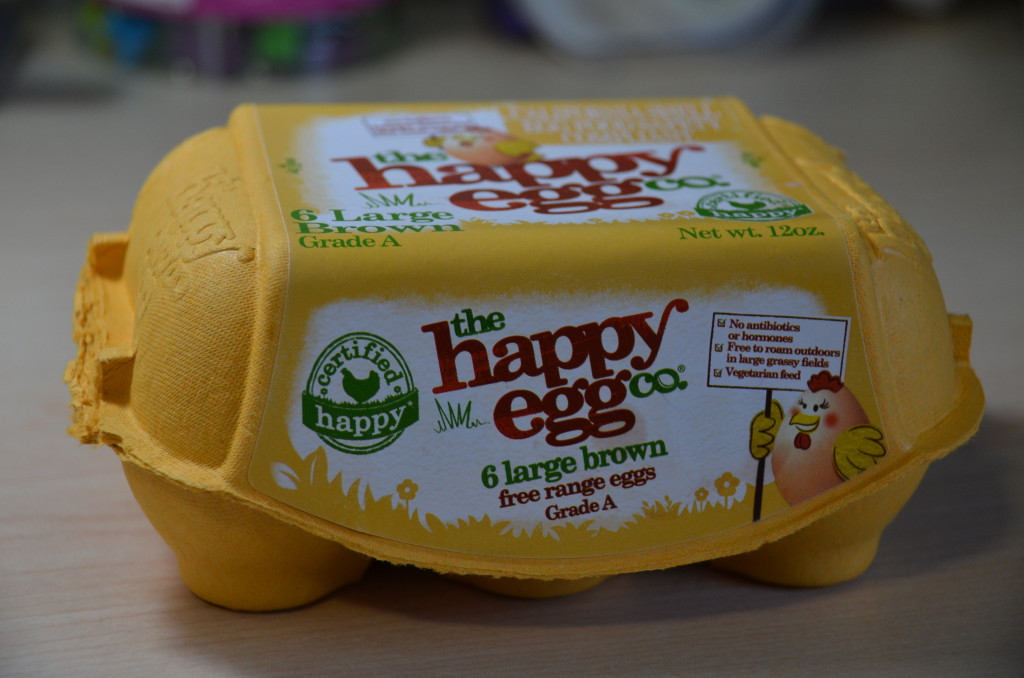
Photo by Smita Jain
Free-range means cage-free plus access to the outdoors. But Mark Kastel of the Cornucopia Institute says that this “access” is usually a few small doors that lead to a screened-in porch with cement, dirt or some grass. The vast majority of free-range birds never actually go outside. Essentially, free-range means the same thing as cage-free.
Pasture-Raised
“In terms of replicating chickens’ natural environment and way of life, pasture-raised is pretty much the gold standard,” writes NPR. Pasture-raised birds spend most of their lives outdoors, and many eat a natural diet of worms, insects, grass and corn.
Organic
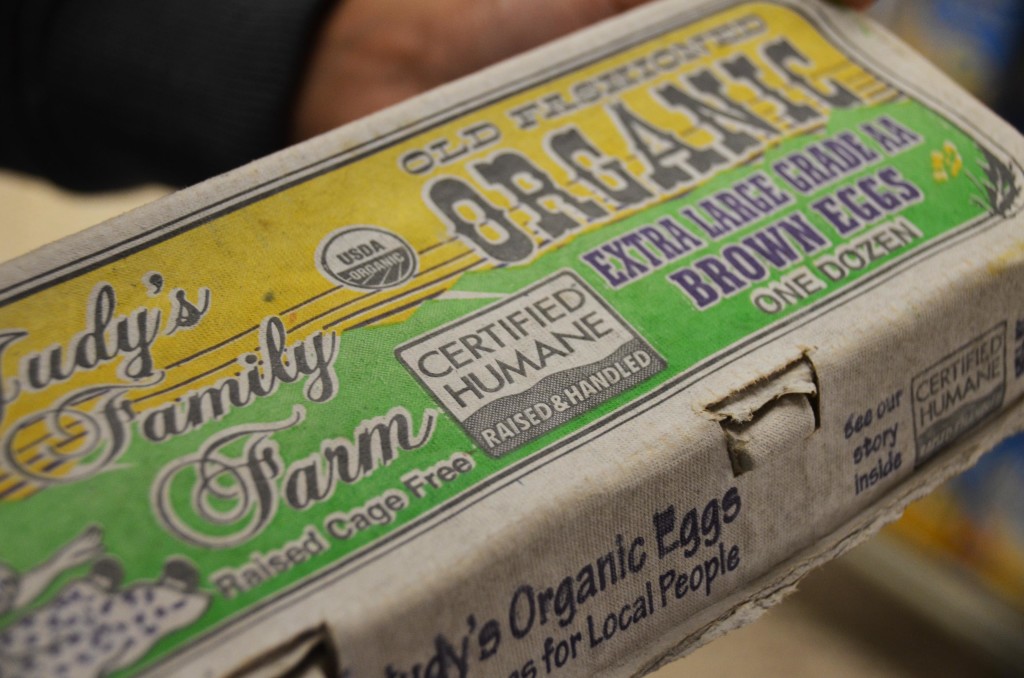
Photo by Smita Jain
Organic eggs come from free-range hens that are fed organic feed. These egg producers are subject to USDA regulations, but since there is no government oversight of what constitutes free-range, organic eggs usually come from birds that live in crowded, industrial aviaries. The most ethical, responsibly sourced egg is therefore from pasture-raised hens and organic.
Regrettably, these eggs are harder to find and far more expensive than typical eggs. On the bright side, California recently enacted a new law that requires all eggs sold in California to come from hens that have at least 116 square inches of floor space.

